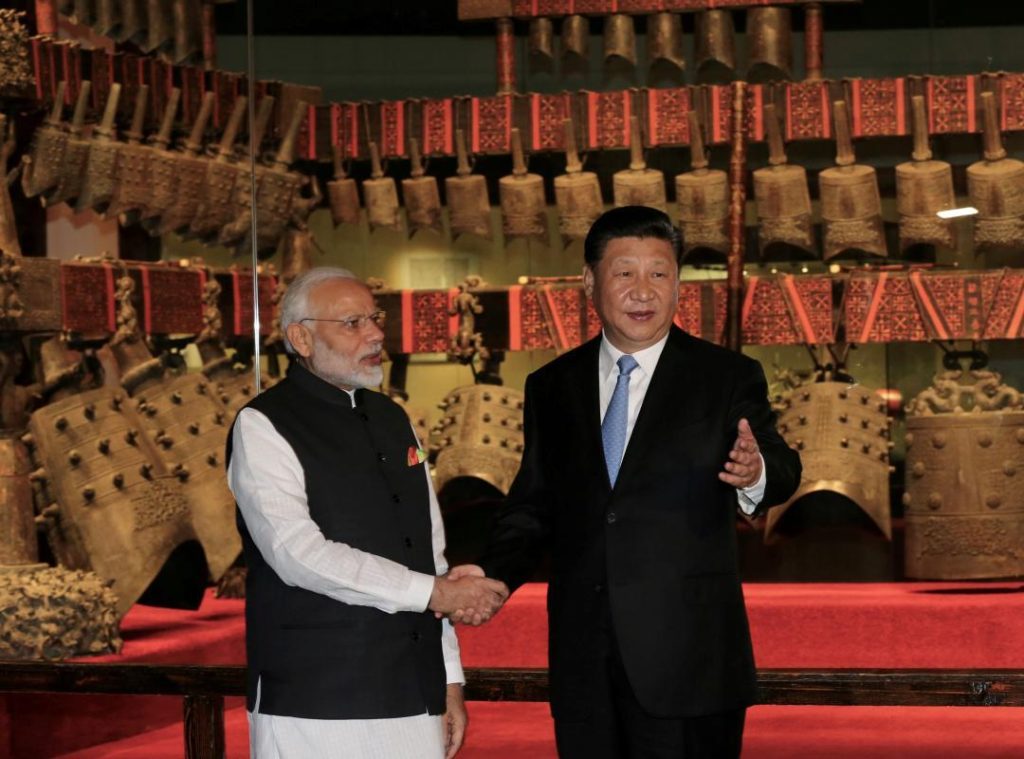
Trump Advisor Targets India Over Ties with China, Says “Getting in Bed with Authoritarians”
In a surprising and provocative statement, Peter Navarro, a trade advisor to former US President Donald Trump, has targeted India over its improving relations with China. Navarro, known for his strong views on international trade and politics, warned India against “cozying up” with China, citing the country’s history of aggression towards India.
The comments come amid heightened tensions between India and the US over a 25% penalty tariff imposed by the US on Indian imports of Russian oil. The tariff was imposed in response to India’s decision to buy Russian crude oil, despite US sanctions on Moscow. However, what’s notable is that the US has not imposed similar penalties on China, the largest buyer of Russian crude oil.
In an interview with an Indian news outlet, Navarro said, “India, you’re getting in bed with authoritarians. China invaded Aksai Chin…they’re not your friends. And Russia? Come on.” Aksai Chin is a disputed region in the Himalayas that has been occupied by China since the 1962 Indo-China War.
Navarro’s comments have sparked a firestorm of controversy in India, with many viewing them as an attempt to undermine India’s sovereignty and diplomatic efforts. India has been working to strengthen its ties with China, including through the Belt and Road Initiative (BRI), a massive infrastructure project aimed at connecting China with Central Asia, Europe, and other parts of Asia.
India has also been a vocal critic of China’s aggressive behavior in the region, particularly with regards to its actions in the South China Sea and its treatment of minority groups in Xinjiang. However, Navarro’s comments have been seen as a direct attack on India’s efforts to build a strong relationship with China.
So, what’s behind Navarro’s comments? One possible explanation is that he is trying to curry favor with the new US administration, which has been critical of Trump’s trade policies. By targeting India, Navarro may be trying to position himself as a hawk on trade and national security issues.
Another possible explanation is that Navarro is simply misinformed about the nature of India-China relations. While it is true that China has a history of aggression towards India, it is also true that the two countries have made significant progress in recent years, including the signing of a series of agreements aimed at reducing tensions and improving trade.
In fact, India and China have been working to strengthen their relationship through a variety of channels, including trade, investment, and people-to-people exchanges. India has also been a key partner in China’s BRI, with several Indian companies participating in the project.
Navarro’s comments have also been criticized for their lack of context and nuance. India-China relations are complex and multifaceted, and it is unrealistic to expect that the two countries will have a perfect relationship. However, it is also important to recognize that the two countries have a shared interest in stability and cooperation in the region.
In conclusion, Peter Navarro’s comments on India-China relations are a reminder of the complexities and challenges of international relations. While it is important to be critical of authoritarian regimes like China, it is also important to recognize the complexity of India-China relations and the need for diplomacy and cooperation.
Ultimately, India’s relations with China are a matter for the Indian government to decide, and it is not for Peter Navarro or any other external actor to dictate how India should conduct its foreign policy. India has a long history of diplomatic independence and sovereignty, and it is important that this continued to be respected.
Source:



